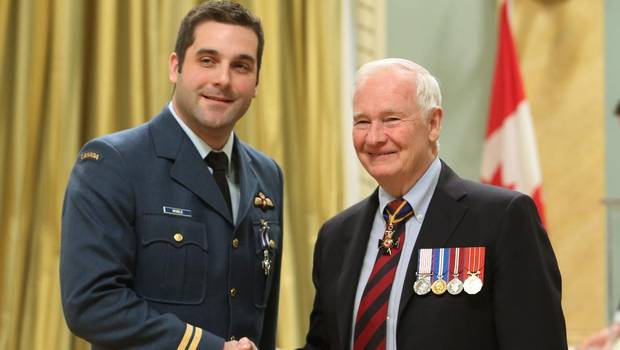Certain WWII medals are only given out by certain nations. This is part of the reason that some soldiers are so highly decorated, and why it sometimes takes several years for them to receive certain honors; there are, in total, a plethora of awards of which to keep track. Some are given for specific campaigns, campaigns in certain regions, missions leaving from specific bases, et cetera. Some given years later are known as “retrospective awards.” One of these retrospective WWII medals given to the navies of the United Kingdom is now being given in Canada as well.
The Arctic Star, a six-pointed medallion similar to the Atlantic Star, was established as recently as 2012. The Queen herself signed off on the award, which was given for the first time the following year. As its name suggests, the Star is given for missions in the Arctic Circle. It is a rarity among WWII medals in that even civilians who aided the war effort in that region are able to receive it. It is generally reserved for those who made supply runs through the region at the time, though there are other criteria which allow it to be received as well.
One of the more interesting criteria is that, despite the Star’s reservation for members of the Merchant Navy of the British Armed Forces, it can be given outside of the United Kingdom to those who have not received a similar award from their own government. This means that a Canadian veteran who has received convoy recognition in the form of Russian WWII medalscan still receive one from Great Britain so long as they have not received any similar such award from Canada, The Globe and Mail reports.
Canadian sailors had not been allowed to receive the Star for the past year, though that has recently changed. The aforementioned requirement is a one-way street. While a Canadian honor would have disallowed receipt of the Star by the United Kingdom, receipt of the Star does not keep the recipient from ever being given similar WWII medals by Canada. If enough countries saw fit, Canadian sailors could receive honors until the day that they die.
WWII medals such as the Arctic Star reinforce the notion that the camaraderie of that era is still alive to some degree today. As benevolent as the man willing to risk his own life to bring supplies to a foreign ally is the government willing to honor a foreign ally for their joint services. While Canadians almost did not receive the Star due to tensions with Russia, that has changed. Hopefully, former allies will never again deny their own people rightfully earned WWII medals solely on the basis of modern tensions.
